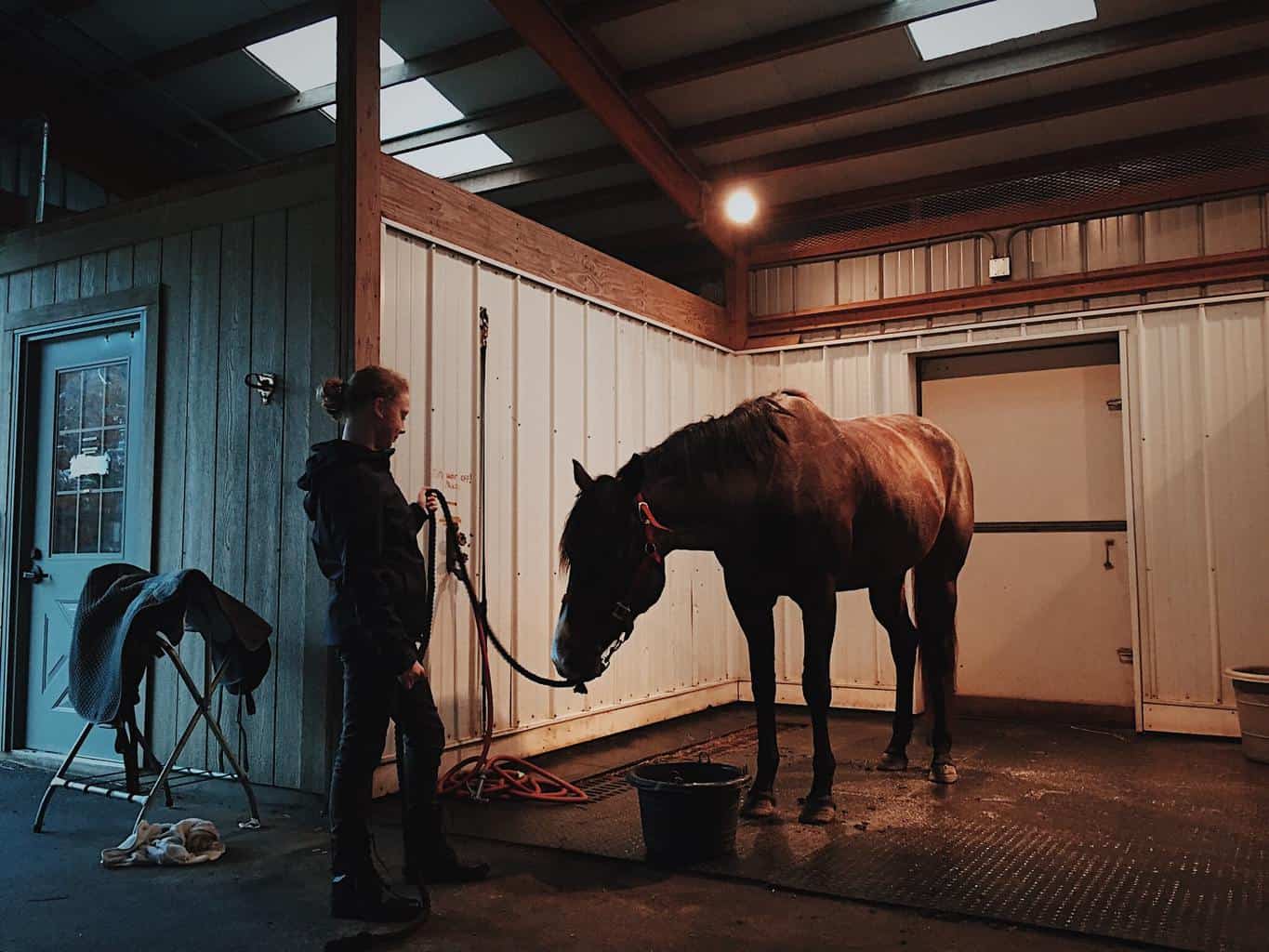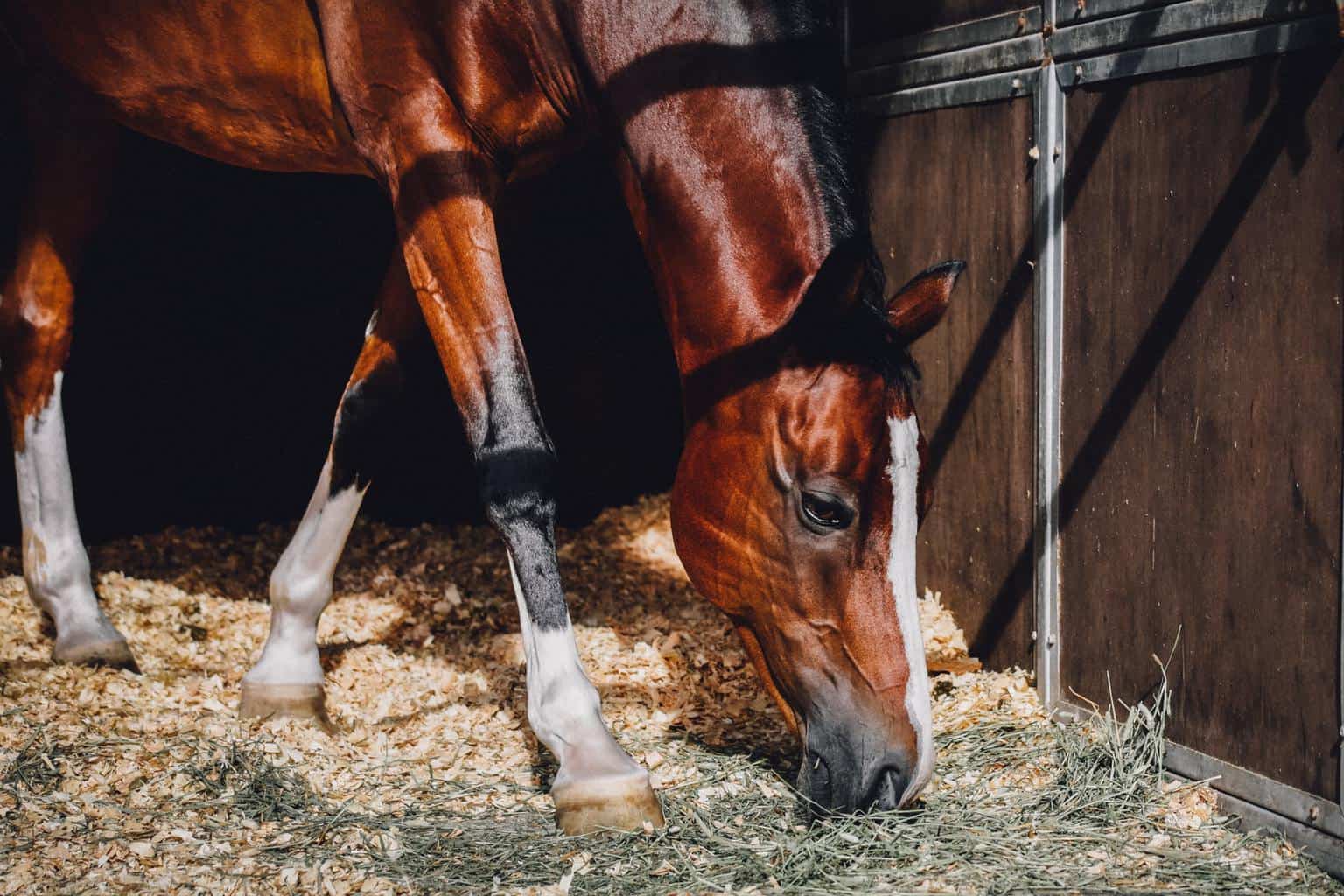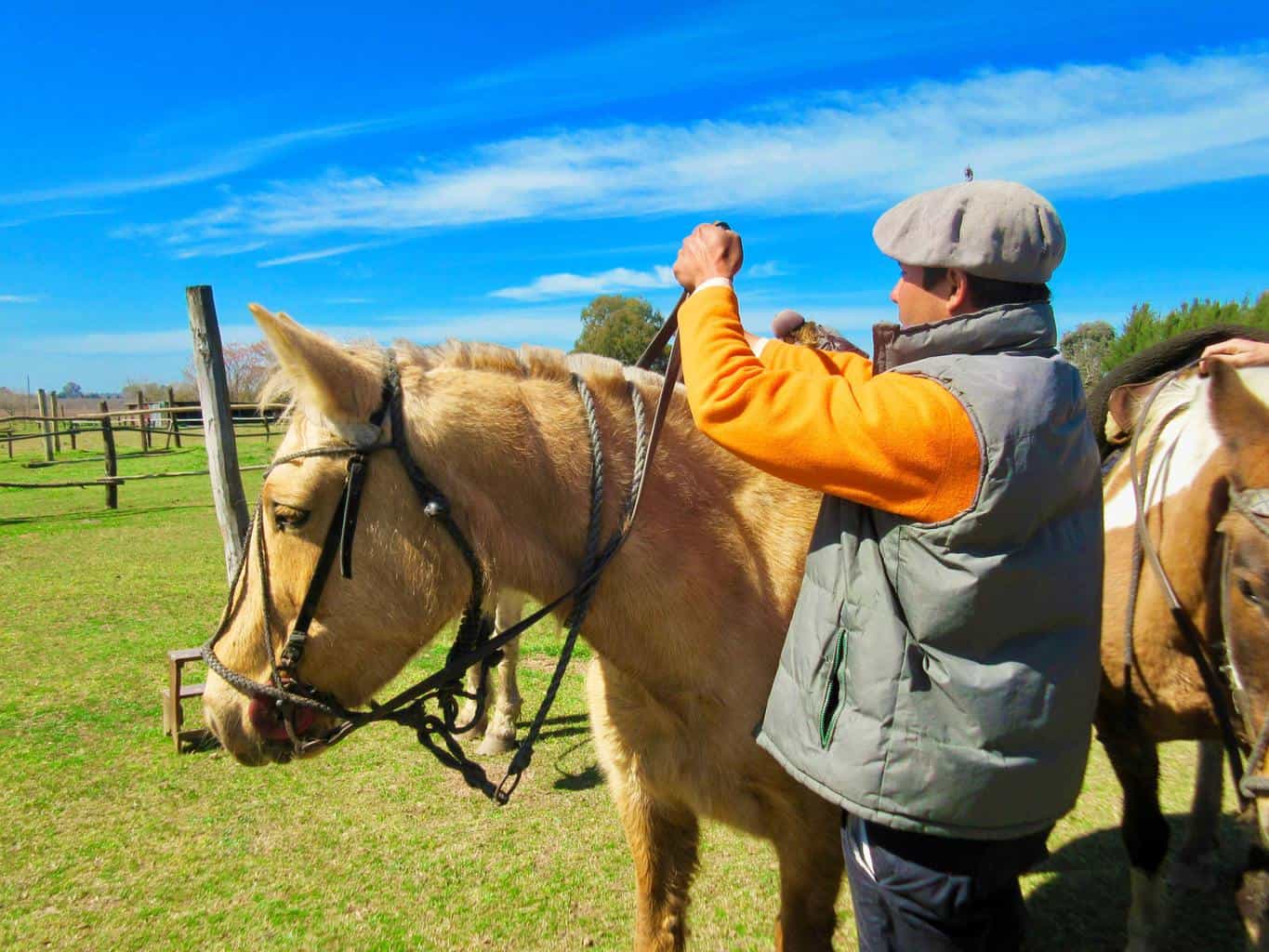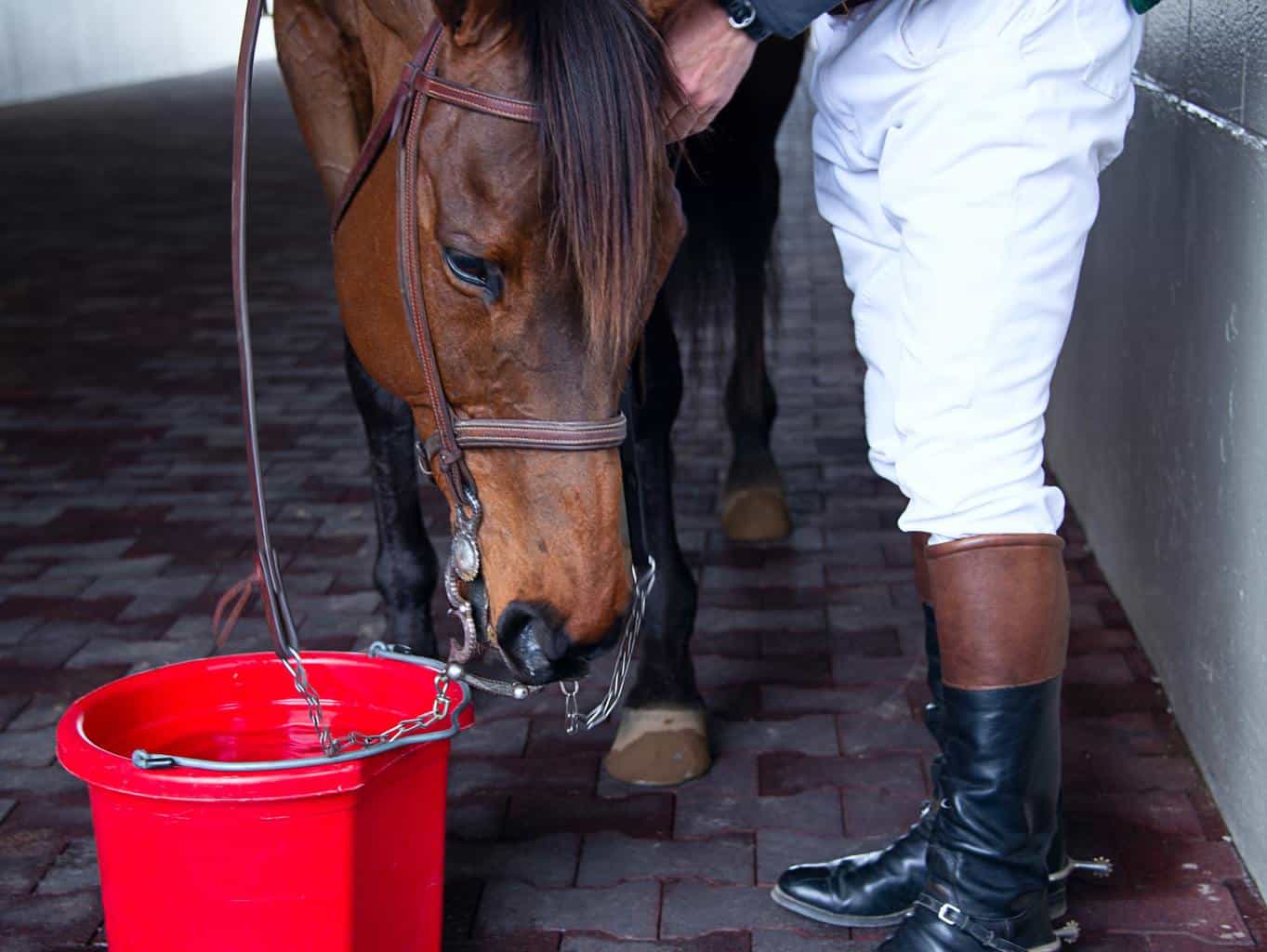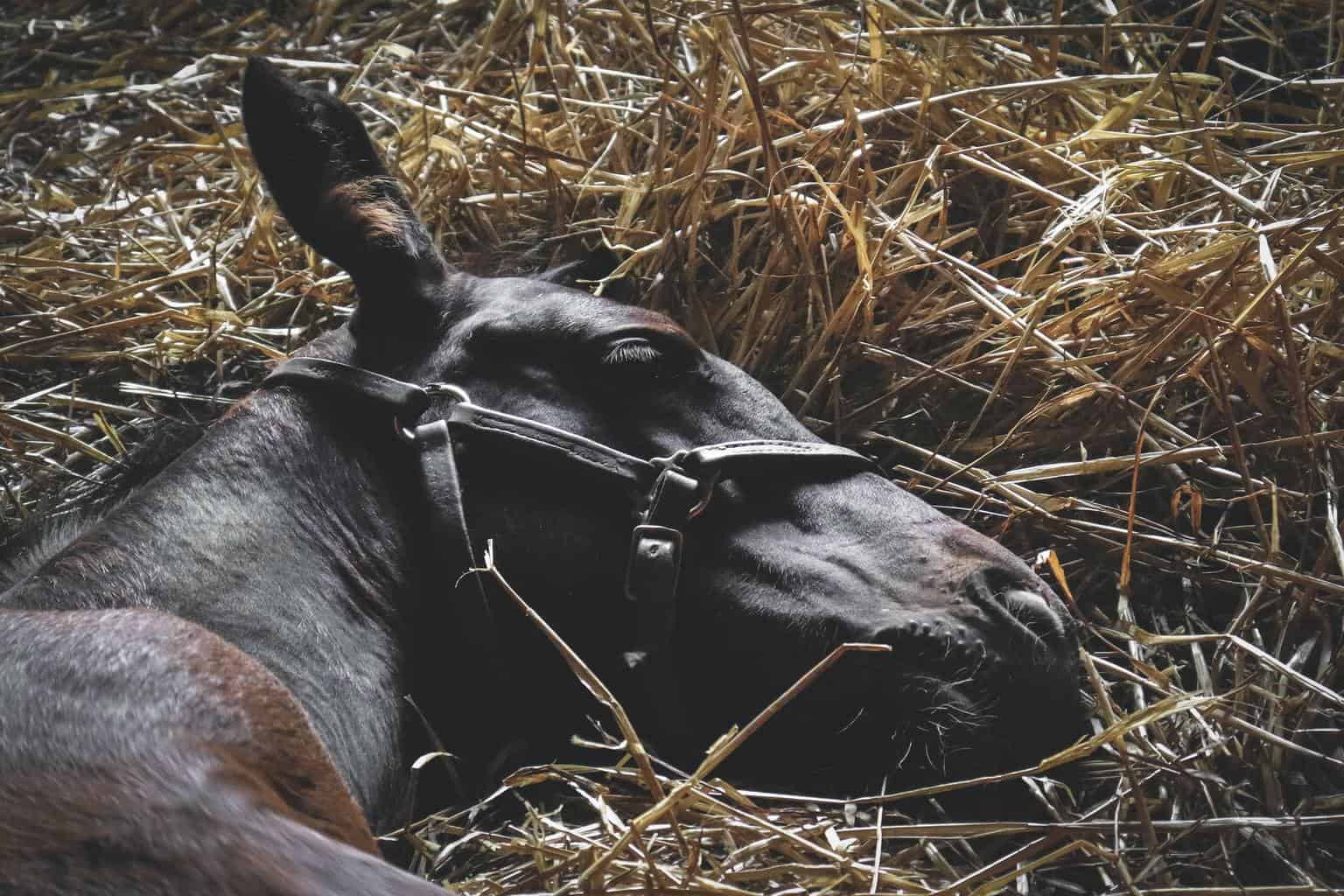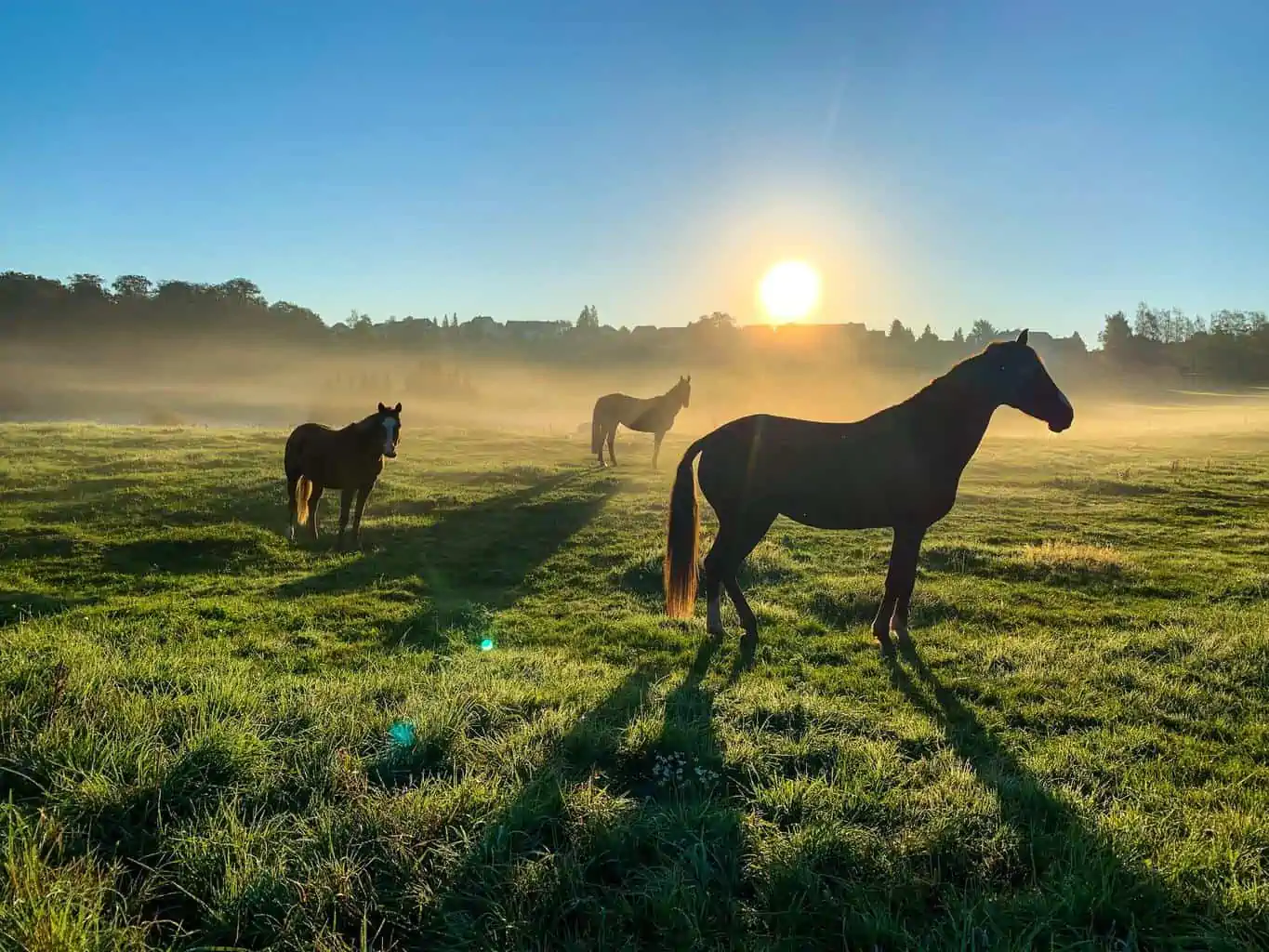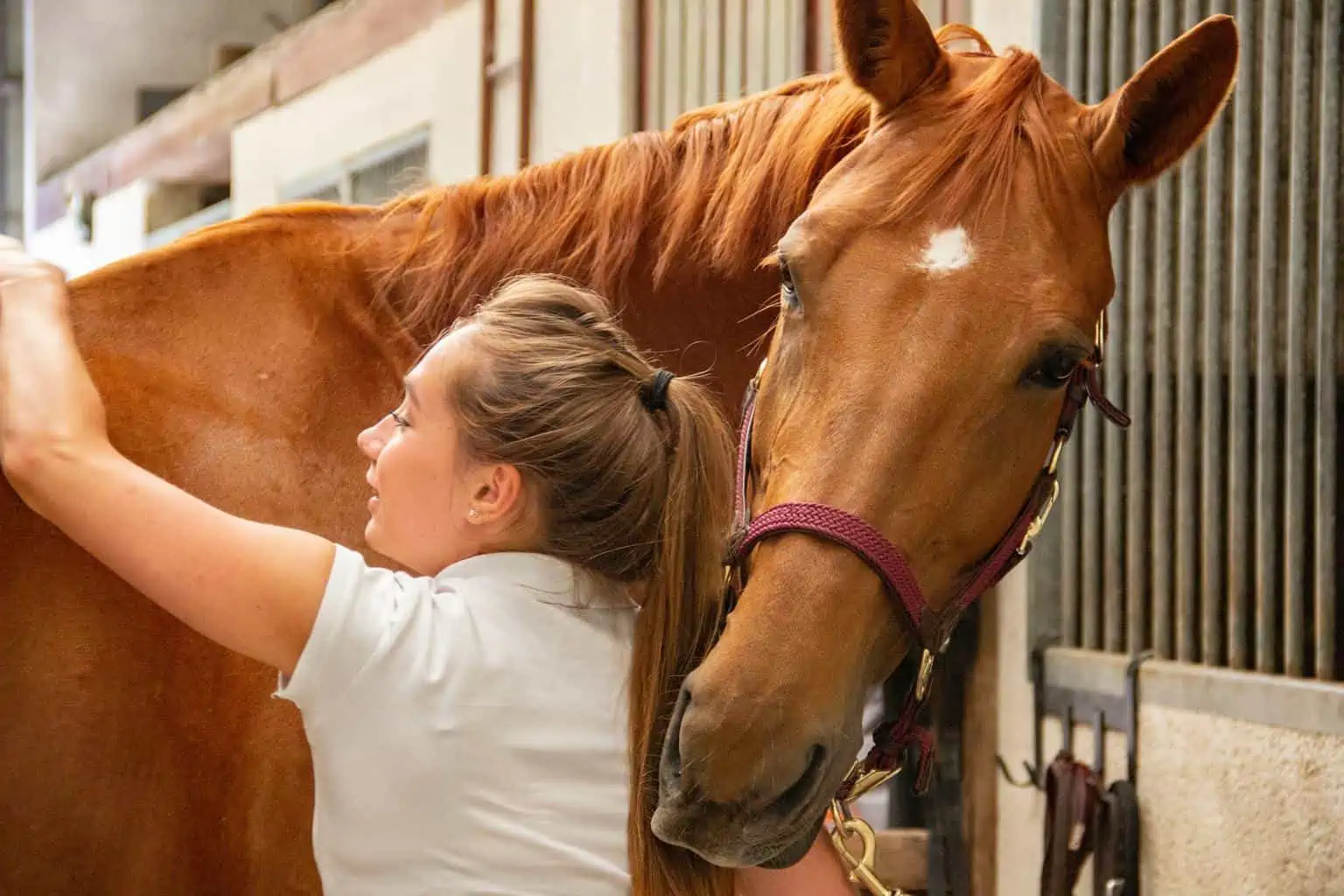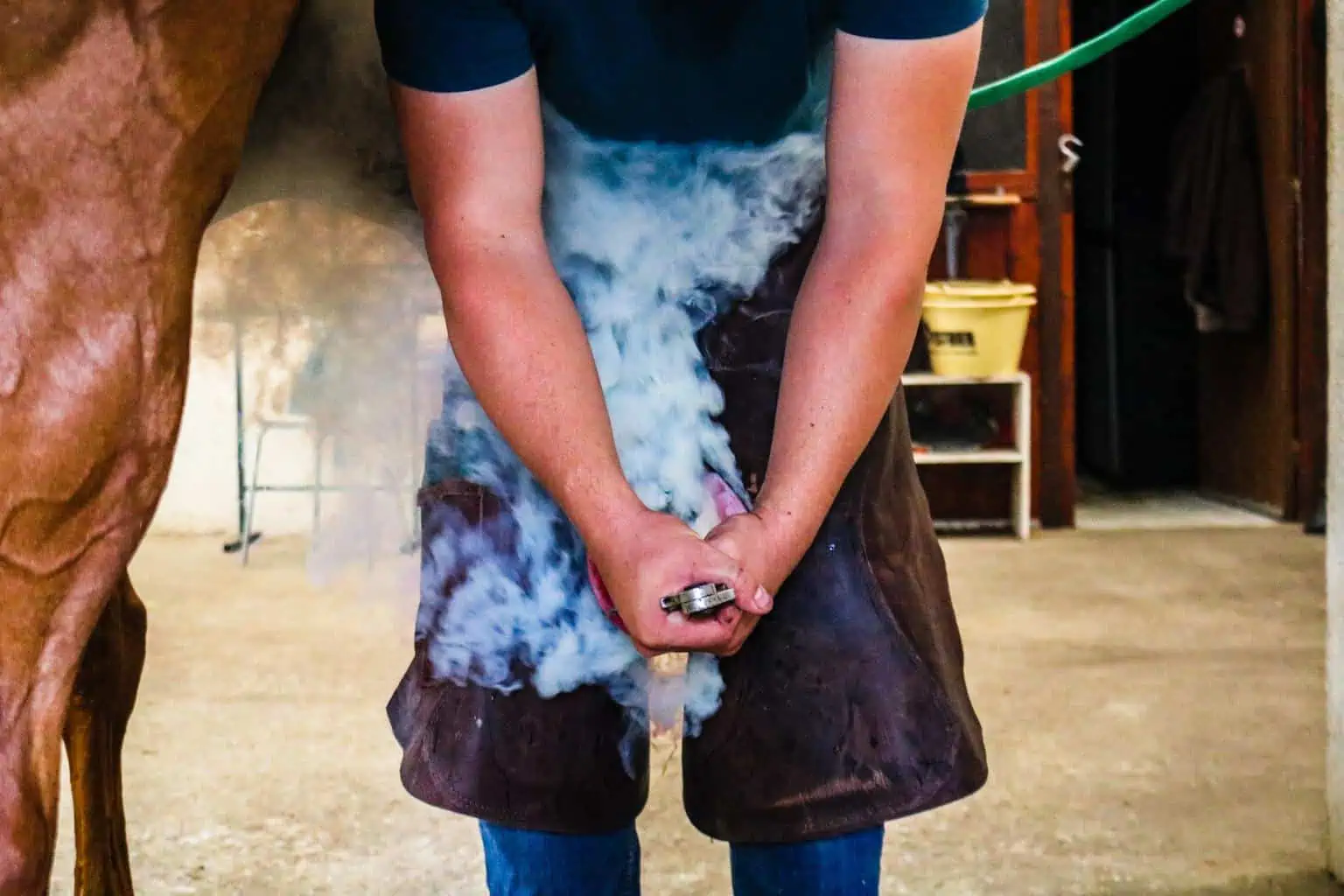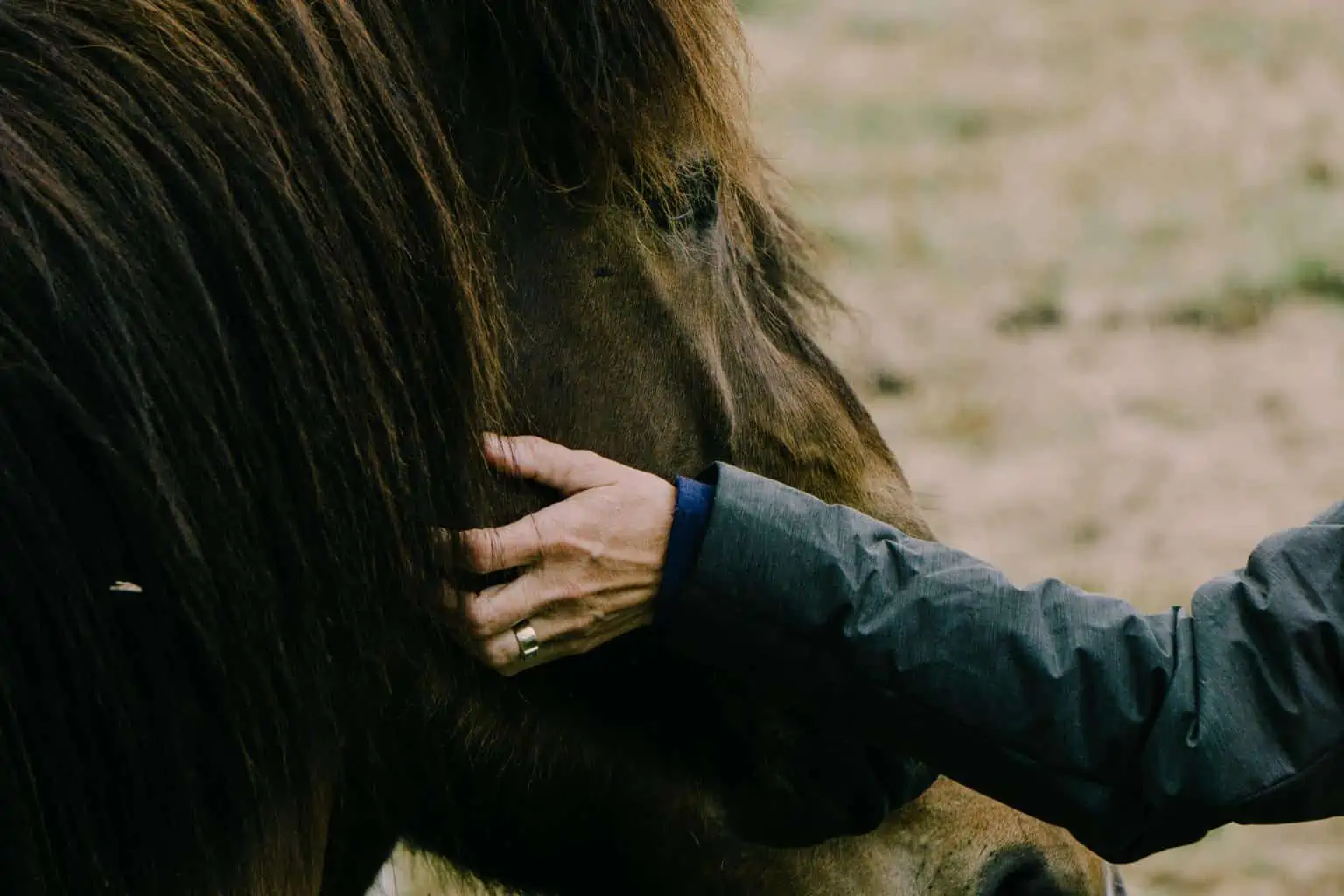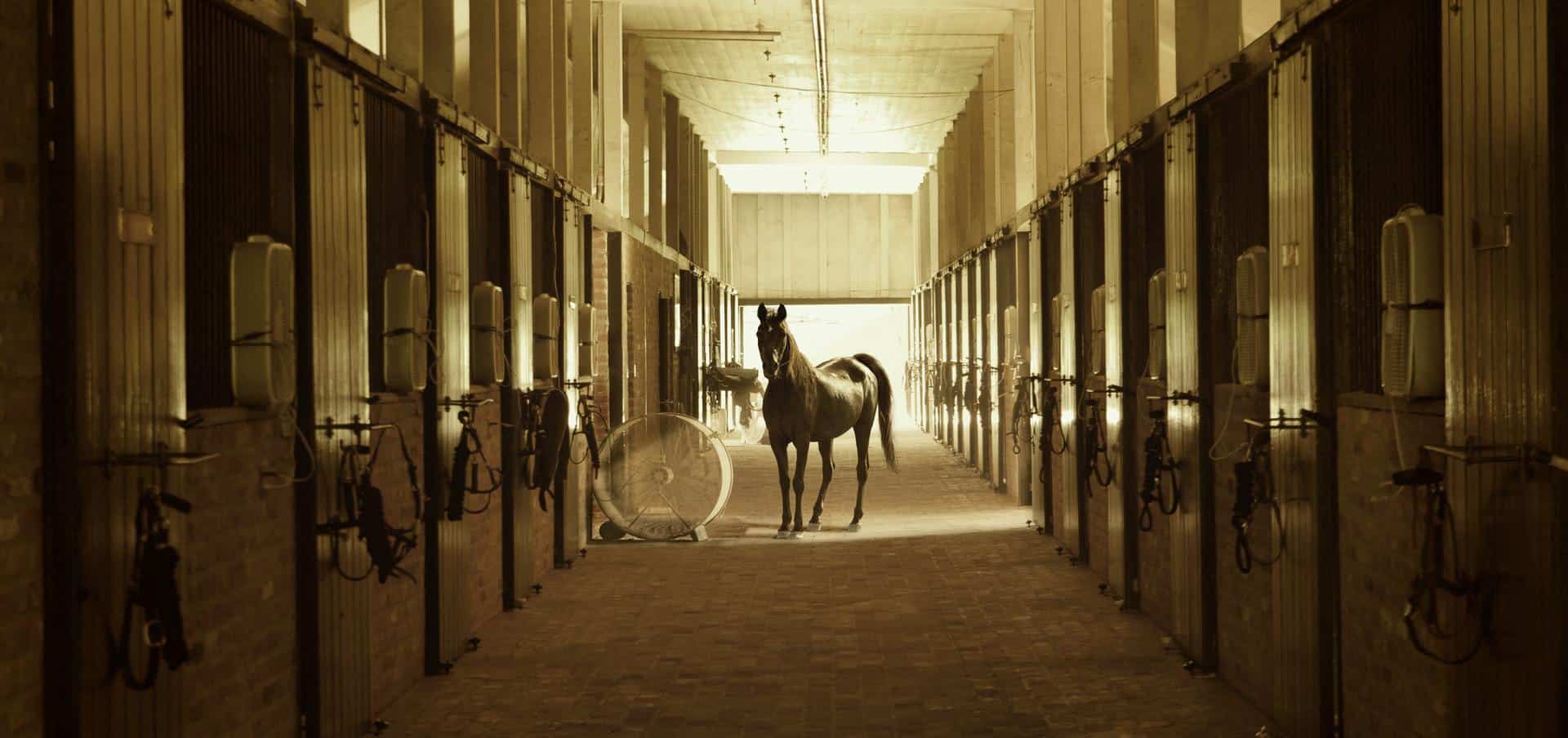- What is a Gaited Horse - October 5, 2023
- What to Look at When Getting a New Farrier - September 21, 2023
- Best Horse Feeds for Older Horses - September 21, 2023
Horse retirement is something most people have probably never heard of or even fully understand. Horses may get retired for many reasons, whether because of injury, age, health, or financial reasons. If the retirement is permanent, choosing a suitable horse retirement facility is essential to give you peace of mind when letting others care for your beloved horse.
Temporary retirement while the horse is retrained for a different purpose can take three months to several years.
Suppose you’ve never had to retire a horse permanently. In that case, you may be quite unsure of what to look for in the facilities you are considering, and you may also be worried about hidden costs and whether your horse will be properly taken care of.
A few years ago, I was in this situation when I had to retire my performance horse from showing due to an injury. The journey to finding a facility that I felt would look after my boy like I did was long but worth it. Here are the top considerations and top retirement facilities in the U.S. for your precious equine.
Bottom Line Up Front
It’s crucial to have all the information and considerations at your fingertips before deciding, as it may drastically affect your horse’s future health. I know you’re busy, so here’s the bottom line answer. I’ve chosen to board my horse at a retirement farm close to me in Tennessee, and it ticks all the boxes on my care checklist.
Finally, I had to weigh up my budget, and I opted for stabling and care facilities that include all the perks of senior horse care. On average, I pay $800 per month, including daily grooming, instead of weekly at the facility.
Retirement vs Retraining: A Career Shift
When a horse is retired, they may be sent to a facility that can care for them at the owner’s cost. However, if the retirement is due to injury, such as a racehorse that can no longer run at speed, they may be retrained for a new career that doesn’t require speed as much as the other qualities the horse still has.
Many injured horses are retired from one sport to participate in a different sport. Retiring a horse is generally accepted as meaning a horse stops all ridden work due to age, health, or injuries.
What Does Retraining Involve?
Retraining a horse that’s retiring from one sport so they can participate in another is a process of honing different skills and physical attributes the horse possesses. A racehorse retiring from racing would begin their retraining with lunging work to develop their lateral muscles and schooling to develop their topline and build the right muscles for dressage, show jumping, or eventing.
Retraining may involve discipline training to develop a new and more patient character in the horse. With patience, the horse will become an athlete again.
Considerations for Your Retired Horse
Your horse needing to be retired may be because of injury, age, personal availability to care for them, and mental considerations. Retiring a horse may mean the horse is allowed to live without being ridden or that the horse is allowed to live out their remaining days at a facility that offers excellent care.
Horses are wonderfully resilient animals, but they can sustain catastrophic injuries such as fractures and torn tendons that may make them unsuitable for riding. If your horse is your partner and best friend, you may choose to look after them yourself, but if you are also a competitive equestrian, you may not have the time to care for them personally.
What Are a Retired Horse’s Needs?
The primary consideration when retiring a horse is that their quality of life is maintained. The horse should be maintained in optimal physical, mental, and emotional health. When a horse is placed under any strain that causes them pain, injury, emotional and mental distress, or poor health, their quality of life is severely threatened. In short, this is abuse.
An older or injured horse that is being retired requires:
Hands-On Care Each Day, Every Day
Horses, whether young or old, should receive daily care. Owners need to check for injuries, signs of illness, and changes in the horse’s physical condition. Older horses need this kind of care more intensively.
When an older horse begins to lose weight, it is always far better to catch this as soon as it starts than to suddenly notice that the horse is skin and bone six weeks later. Injuries and physical wear and tear will only recover when it is treated immediately. With older horses, they often don’t just “get over it” anymore.
Disease is an ever-present threat to an older horse. Biliary, West Nile, and other region-specific diseases can quickly weaken and kill an older horse. Likewise, a sudden change in the weather can also cause an older horse to sicken. Only when the horse’s caretakers are hands-on and involved daily will the horse stand a chance at an injury and pain-free life.
Correct and Consistent Feeding
When horses age, their dietary requirements change. A horse that used to be a good-doer may suddenly require three times as much feed and hay as when they were younger. Older horses require regular feeding. It may mean they need three to four meals per day to help them remain in top condition.
A younger horse that is being retired due to an injury may not need as much feed, but they will need more than if they were in light work as they will begin to drop muscle mass with a lack of physical activity.
Supplementation for Health Management
Whether the horse is retiring due to age or injury, they will require appropriate supplementation. It is best to consult with your equine nutritionist to help you choose the best supplementation that your horse needs. Supplements could help foster healthy bone growth, tendon repair, gut health, and ulcer treatments.
If your horse is retiring, the facility that will take over their care should be equipped to provide the horse’s daily meals and supplements.
Vet Checks and Supportive Care
Older people go to the doctor more often, and it’s the same with horses. Older horses need more regular vet care to ensure they live a life free from pain and discomfort. The retirement facility should have a vet on standby or an in-house vet that can help administer medicines, treat injuries, and diagnose changing health conditions.
Vets should check whether the older horse can see clearly if their eyesight is failing, whether the horse shows good coordination or lack thereof, and whether the horse can properly digest food and maintain a healthy body.
Other supportive care a retirement facility should offer includes clipping in summer, grooming, washing, blanketing at night and during the day (when weather is cold or wet), leading to and from stables, and kindness during the horse’s whole day.
Regular Light Exercise and Movement
Horses should move. Retirement facilities should offer daily exercise tailored to your horse’s capabilities as activity supports healthy guts and maintains muscle tone. A horse that simply “stands there eating grass” with no exercise is a horse heading for illness.
Horses that can still move at a trot may benefit from light lunging or in-hand walking, while physically challenged horses may only be able to enjoy the walk to their paddock in the morning, which is enough exercise for them. Vet recommendations should be kept in mind when deciding how much exercise is enough for your horse.
A Stress-Free Environment
Since horses quickly become stressed and often injure themselves, it is important to create a stress-free environment. Their care should include how the staff is trained, the horse’s handling, and their pairing with other horses at the facility.
The manager should identify if there’s one horse that bullies another and take steps to maintain a peaceful grazing routine.
Shelter from Elements
Older and injured horses often get colder more quickly since they cannot gallop to increase their body heat. Blankets, run-in shelters, stables, and wind protection are essential to help older horses not burn through their energy (and body weight) simply to keep warm.
When the weather is really bad, such as during storms or snowy days, it may be best practice to keep the horses in their stables or move them to an open barn where they can move around while staying out of bad weather.
Good Quality Grazing
Retirement facilities need to offer substantial grazing. The quality of the grazing should be top-notch, with wild species of herbs, legumes, grasses, and supplemented hay available year-round.
Peaceful Companions
The emotional and social needs of horses need to be catered to at retirement facilities. If horses are kept in separate paddocks, they should still be able to see other horses or have the presence of other mild-mannered farm animals like chickens or sheep around. Lonely horses don’t do well.
Farrier Work and Dentistry
Retired horses over 10 years old should see a dentist for a dental float every year, while younger horses that may be retired due to an injury need to see the dentist every six months.
Farriers are essential not only to working horses but also to retired horses. The retirement facility should provide regular access to a qualified farrier who can change shoes, assist an older or injured horse that needs corrective shoeing, and help alleviate pain with corrective barefoot trimming. Horses need to have a regular farrier scheduled every six to eight weeks.
Further 
Your retired horse also needs to be treated by other healthcare professionals such as physios, chiropractors, equine bodyworkers, sheath cleaners, and even acupuncturists (if your horse needs them).
Remember that your horse’s physical condition is not likely to reverse at a retirement facility. Instead, your horse’s health can take a severe dive if you don’t keep on top of their physical needs. Working with equine professionals can help you make informed decisions.
End of Life Plan
Nobody likes to think of their beautiful horse reaching the end of the line, but it happens for all horses. At some point, your horse’s health will move beyond what current medicines may be able to heal or manage, and you may also find that you are faced with a difficult decision of whether your budget can adequately provide for your horse’s care.
Retirement facilities need to have a policy on how the end-life decision is approached, what forms of assisted passing are accepted (humane euthanizing or shooting), and what will happen with the remains. Believe it or not, there is much responsibility (and costs) in correctly managing horse funerals.
What You Should Look for in an Equine Retirement Facility
When it’s time to retire your horse, you need to know what you are looking for in your choice of retirement facility. Your requirements should include:
Attentive and Qualified Staff
The staff at the facility should be qualified, with relevant horse management certifications. All caregivers for your horse: the receptionist, groom, and manager should be able to answer your questions without any hesitance. These people will be taking over your role as your horse’s primary caregiver, so make sure they can reassure you that your horse is in good hands.
Effective Management
Running any horse boarding facility is no joke. Herd management, delivery of consumables, caring for the horses’ needs, managing staff, and ensuring that all the requirements regarding grazing and feeding are met and that all medicines are up to date is a BIG responsibility.
The person managing the retirement facility needs to be available to answer your questions, and they should be approachable. It’s always best if the manager also lives on the property so you know they can be there if your horse needs them any time of day.
Equine Treatment Partners
When considering a retirement facility, you should approach the local vets, farriers, chiropractors, and other equine partners in the area and ask for their honest opinion of the service and care the animals receive at the facility.
Ask how often the retirement facility uses their services and what the common ailments at the facility are. If injuries are a frequent occurrence, you should be worried.
Facility Layout
How the facility is laid out will speak volumes about the people you will be trusting with your beloved horse. If everything has its place, you are dealing with an organized mind, but if things “just kinda happen,” you are looking at people who “wing it.” I know that I’ll take organized thinkers over disorganized minds any day.
Referrals
Local horse forums and support groups are great places to ask about equine retirement facilities. People who have or had horses at these facilities will be able to give you an inside scoop on what facilities are excellent and which should rather be avoided.
Communication
When you partner with an equine retirement facility, you want to be able to communicate with them and receive a response or information in an appropriate amount of time. Waiting weeks to hear back on a question you’ve asked doesn’t speak well of their communication methods.
Communication is essential for when (not if) your horse is sick, has been injured, or needs extra care. Combined with the facility’s expert knowledge, your care partners should be able to advise you when it’s time for the end-of-life decision for your horse.
Budget
Finally, there are some excellent equine retirement facilities in the U.S.. If you have the budget to pay for it, there are daily heated pool swimming, massage therapy, deep pine shaving beds (that are also changed every day), and every care taken of your horse from show-style grooming to monthly vet checks. It would be heaven for you and your horse. Most of us don’t have that budget, though.
With budget constraints, you need to evaluate the “nice-to-haves” and the essentials for your horse’s retirement care needs. The most expensive retirement facility isn’t always the most dedicated or best-rated, so dig for information before simply looking at prices.
Equine Retirement Facilities Overview
There are some excellent retirement facilities in the U.S., and some are recommended by associations like the American Quarter Horse Association (AQHA) and the United States Hunter Jumper Association (USHJA). Here are a few popular choices to consider and investigate when you need to retire your horse.
Paradigm Farms
Located in the lush grazing fields of Lynnville, Tennessee, Paradigm Farms has a reputation for excellence in taking care of your retiring horse. The social media reviews rave about the tranquility and splendor of the farm, speaking about the management and layout of the facility.
The farm has also been featured in many respectable equine publications. The staff and management welcome all questions and genuinely seek to reassure you that your horse will enjoy the peace and dedicated care until their last days.
Orchard Equine Retirement
Since 1988, Orchard Equine Facilities have catered to retiring and retired horses from any breed and age. At Orchard Equine Retirement facilities, there is a limit to how many horses the facility will accommodate at a given time.
It means your horse won’t be lost in large herds where they can’t get the care or attention they need. The maximum number of horses is 20, divided into small herds. In this natural environment, the facility best simulates the natural herd dynamic of wild horses.
Riverside Retirement Farm
Riverside Retirement Farm is a newcomer to the retirement field, but the owners have decades of experience. Horses retired here receive top management and care regarding grazing, feeding, grooming, and routine health checks. Dentistry, farrier work, and supplementation are all part of the different packages.
The sheer size of the individual stables and run-in paddock shelters are enough to make a horse owner weep with joy.
Costs of Horse Retirement Services
The cost involved in retiring a horse is more involved than most people understand. Retiring a horse isn’t a short-term commitment. Horses can live for many years, with many senior horses reaching their thirties and even forties. If a horse is retired at the age of 20, they may have another decade or two of a good life. Extended care translates as costs for the owner.
If you have the budget and love your horse, this is doable with the help of a great retirement facility. Your horse has served you many years, and their retirement is how you serve them.
The average horse retirement costs are $450-$800 per month with live-in stables, run-in sheds, grazing paddocks, medical care, farriery, dental work annually, and additional feeding. Some retirement facilities may charge extra for more feeding than the norm, escalating the cost to upward of $1,000 per month.
If you have the budget of a luxury retirement facility, you may spend as much as $2,000 per month, which may cover quarterly vet checks, chiropractic work, and massage therapy.
FAQs
Answer: Horses may be retired due to age, infirmity, or a debilitating injury. When you retire your horse, you take them out of active work, placing them where they can enjoy a comfortable life without needing your daily care. Usually, when retiring a horse, they are moved to a facility where professionals care for the horse on the owner’s behalf.
Some retired horses are moved to a different sport, such as leasing out a former dressage horse for a short distance hacking horse to an older but experienced rider.
Answer: When racehorses are no longer able to run fast, win races, or breed champions, they may be retired to live out their days in a retirement facility, or they may have a change in careers.
A “retired” racehorse may be retrained to do eventing, dressage, showjumping, or other equestrian disciplines. Even with mild injuries, these horses may have a “second life” in a new equine discipline because of their retirement.
Answer: Horses that need to be retired due to injury can face a bleak future. If the horse is a breeding prospect, such as a thoroughbred filly that raced and suffered a tendon injury, they may be given a new job as a broodmare at the stud.
Some horses may be retrained for a different horse discipline, while others may be unlucky and can be sent to slaughter. Rescues and retirement facilities may take over a horse destined for slaughter, allowing the horse to have a last chance at living until their final days.
The Final Equine Retirement
My horse has been living out his glory days at the retirement facility for several months now. I have been able to guide other owners through the painful emotional side of letting go while embracing the responsibilities of caring for a fully retired horse.
Whether your horse is temporarily retired and may need to learn new skills to shape in a different discipline or if they are permanently retired from being ridden, you can and should still maintain that bond of love you’ve always had with them.
If you consider getting a new horse, it never hurts to go over the basics of horse ownership again to know you are getting everything right.


